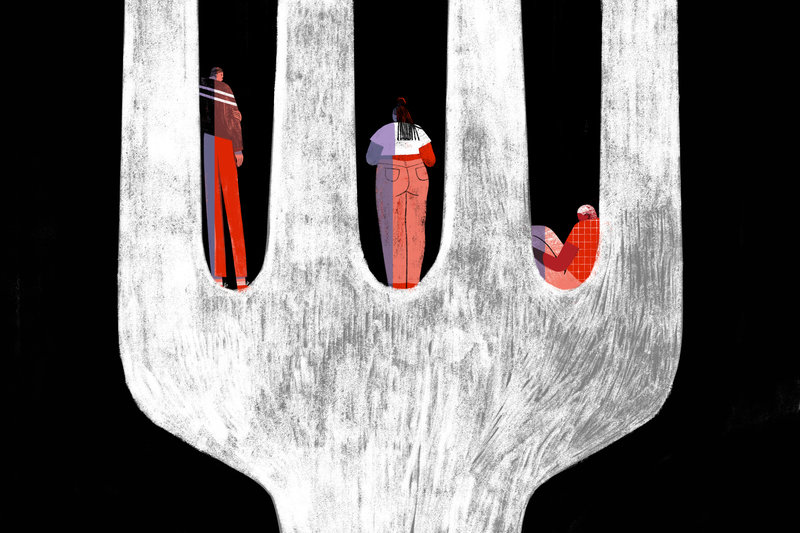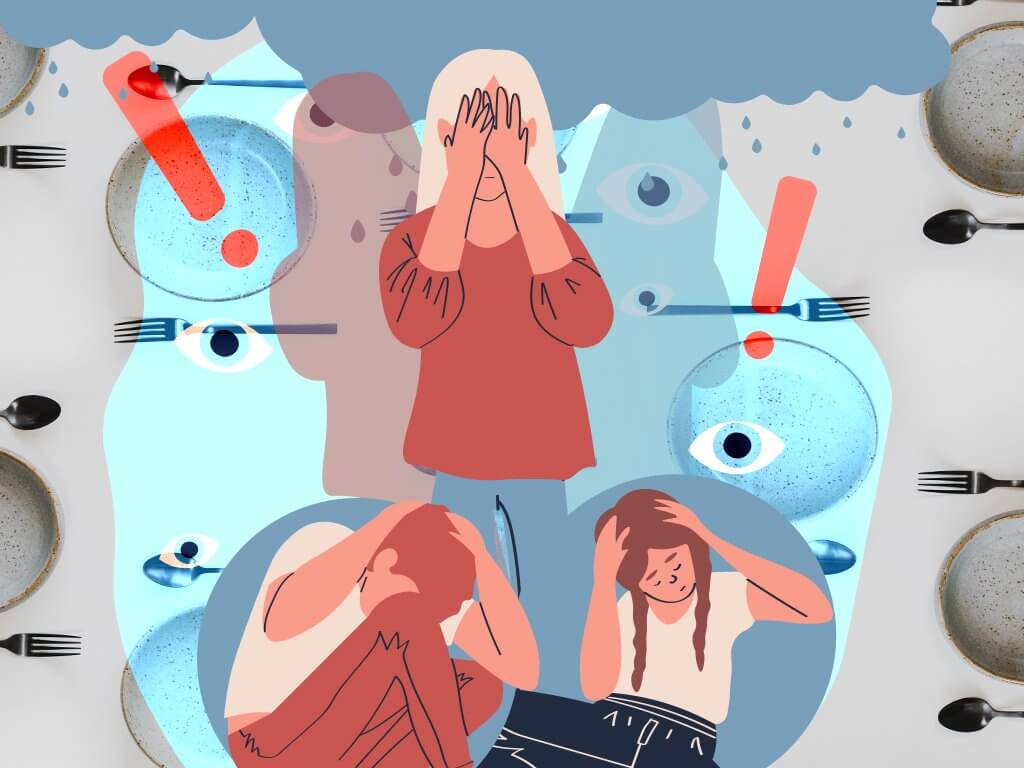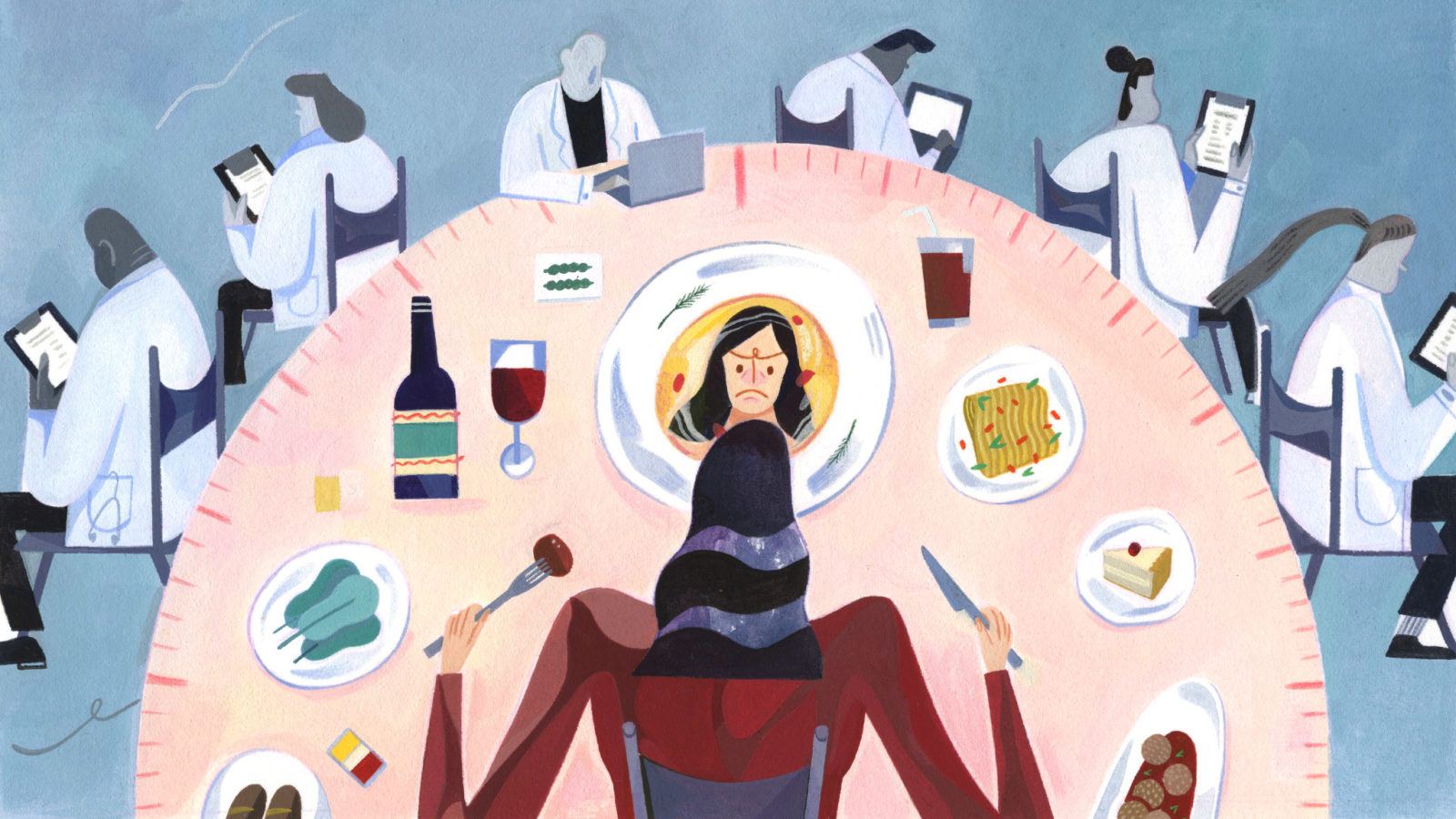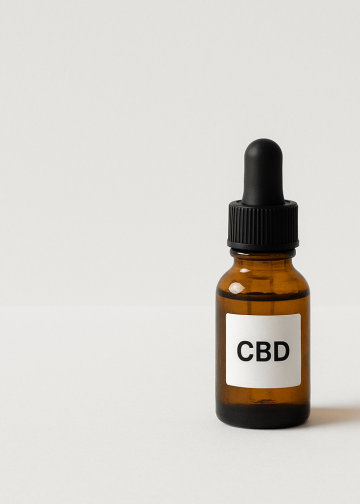Not feeling hungry at any particular hour is fine but not feeling hungry at all in 24 hours should make you skeptical. Or do you fear you will put on weight? Being conscious about your health is affirmative but having a compulsive fear about weight gain or weight loss is an indicator of eating disorders.
Eating disorders are a medical condition that not only affects our physical health but psychological health as well. It would not be far fetched to call it a mental illness.
According to the American Psychiatry Association, “Eating disorders are an illness in which the people experience severe disturbances in their eating behaviors and related thoughts and emotions. People with eating disorders typically become preoccupied with food and their body weight.”
An eating disorder affects mainly women in their teenage or young adulthood (15 to 35 years of age). In this condition, individuals eat excessively or are forbidden to eat, which ultimately damages their well-being.
An eating disorder is highly focused on weight, body shape, and food. This leads to dangerous eating behaviors. This disorder diminishes our body’s ability to be healthy. Resulting in the deterioration of our mental and physical health.
An individual can become severely malnourished. Which can cause other health problems to arise. This condition is treatable but it needs to be addressed timely, to lessen the consequences.

Types of Eating Disorders
Following are some of the eating disorders and their characteristics:
-
Anorexia Nervosa
The most well-known and common eating disorder is anorexia nervosa. It occurs in individuals who are unhealthily obsessed with gaining too much weight so as a result, they eat too little. It is a life-threatening condition.
People with anorexia eat extremely calorie-deficit diets because they have a fear of gaining weight. It is also characterized by self- starvation
Symptoms:
- Not accepting the low weight
- Intense fear of gaining weight
- Obsessed with weight loss although already underweight
- Food restriction leading to self-starvation
- Problems with body fat despite low weight
Health complications due to anorexia:
- Amenorrhea
- Severe constipation
- Depression and anxiety
- Fatigue
- Hair and nails become brittle
- May lead to heart problems (bradycardia or tachycardia, heart failure, etc.)
- Anemia
- Malnourishment
- GI Tract infections and complications
- Edema
- Low blood pressure
- Osteopenia or osteoporosis
- Drying of skin and yellow hue appears
An anorexic person not only limits their calories but uses drastic measures to lose weight such as diet pills, laxatives, or purging after eating. It can lead to organ failure and ultimately death.

-
Bulimia Nervosa
Bulimia is usually characterized by binge eating followed by purging (forced vomiting), or the use of diuretics and laxatives. Individuals suffering from bulimia are very unhappy with their body weight, shape, and size.
While binge eating, a person usually feels that they cannot stop eating and they can’t get better. They feel guilty, shameful, and fearful after eating so much that they force themselves to get rid of all the calories consumed.
Bulimic individuals criticize themselves harshly and create self-perceived flaws, which they want to correct.
Symptoms:
- Binge eating
- Forceful vomiting
- Strong negative self-image
- Overuse of laxatives or diuretics
- Going to the bathroom immediately after meals
- Not eating in front of others
- Stained teeth due to acid reflux
Health complications due to bulimia:
- Nutrient deficiencies
- Tooth decay
- Kidney failure
- Heart problems
- Acid reflux
- Digestive system decline
- Dehydration
- Electrolyte loss
- Gingivitis or periodontitis
- Mental health decline
-
Binge Eating Disorder
Binge eating disorder can begin at any stage of adolescence and follow you to adulthood. It has symptoms similar to binge eating.
A binge eater cannot control the amount of food they consume. They keep on eating until they are very full. All this happens in a short amount of time. Lack of control while eating persists throughout this condition.
Binge eating is not followed by vomiting like in the other disorder. No laxatives or diuretics or diet pills are used.
Symptoms:
- Anxiety
- Depression
- Eating until you are full despite not being hungry
- No calorie restriction following binge eating
- Overweight
- Rapid eating
- Feeling guilty and disgusted with one’s self
Health complications due to binge eating:
- Obesity
- Type 2 diabetes
- Stroke
- Chronic illness
- Irritable bowel syndrome
- Mental health decline
- Infertility
- High cholesterol
- High blood pressure

-
Pica
Pica involves the consumption of things that are not food or food substances. For instance, sand, paper, chalk, soap, hair, laundry detergent, etc.
It’s the craving of non-food substances. It can occur in children, adolescents, and adults, and even pregnant women.
This may lead to an individual poisoning themselves unknowingly, increased risk of infections, nutritional deficiencies, and gut injuries. Pica can also be fatal.
Usual cravings in pica:
- Ice
- Sand
- Dirt
- Paper
- Cigarette ash
- Paint
- Hair
- Clay
- Glue
- Chalk among other things
-
Avoidant/Restrictive Food Intake Disorder or AFRID
This disorder starts as early as infancy or early childhood. It gives a whole new meaning to picky-eating. It's common among both men and women.
Individuals with disorders avoid eating not due to fear of weight gain but because they lack an interest in eating. Mostly dependable upon the sensory traits of the individual. Such as distaste for certain smells, taste, colors, and textures.
Symptoms:
- Weight loss
- Malnourishment
- Not feeling hungry
- Severe Nutrient deficiencies
- Avoidance in eating food
- Mood swings
- Sluggish appearance
Health issues due to AFRID:
- Cognitive impairment
- Digestive health decline
- Underweight
- Mental health decline
- Stunted growth and body development
Rumination Disorder:
It is a rare and fairly new condition that turns into a chronic illness. It affects infants, children, and adults.
Regurgitating food after eating is the main characteristic of this disorder. It is not because you are forcing yourself to purge but rather a voluntary action without nausea or gagging or vomiting.
Symptoms:
- Bad breath
- Dry mouth or lips
- Malnourishment
- Unable to keep in food
- Weight loss
- Indigestion
- Tooth decay
Causes of Eating Disorders:
Eating disorders can be a result of different factors, such as:
- Biological
- Irregular hormonal functions
- Hereditary
- Genetics
- Psychological
- Mental disability
- Fear of gaining weight
- Self-criticism
- Negative body image
- OCD
- Depression
- Environmental
- Peer pressure
- Social norms
- Professional life and stress
- Trauma
- Cultural
- Stressful life changes
- Aesthetically oriented sports
How Do You Treat Eating Disorders?
Due to the severity of the conditions, eating disorders are treated professionally with set protocols. Several therapies are applied and plans are made for an individual’s well-being.
- Monitoring the progress of the individuals
- Addressing all health issues
- Minimizing the triggering situations
- Diet stabilization and guidance for healthy eating
- Group therapy or psychoanalysis
- One-on-one sessions with a psychologist
- Taking medications according to the respective disorder
- Promoting positive attitudes and behavior
- Preventing negative attitudes and behavior


























